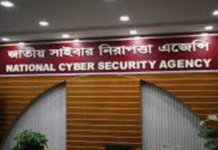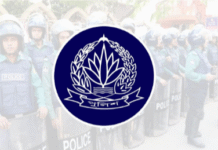A call for change

Where is student politics headed in Bangladesh?
Student politics is considered to be one of the key aspects for shaping a country’s youth for politics. Engaging in such activities helps a student shape her perception, her thoughts, and ideas towards doing something good for her country.
Student politics also played a key role during our Liberation War. However, that golden era has long since passed, to be replaced with a dark veil that seems to have corrupted its very ideology.
In order to address the current state of student politics in our country, we must learn to look past the surface and address the roots of this problem. Student politics is essential, not to groom the next generation of Gandhis, but to create a future generation taking active interest in exercising the full dominion of their rights as citizens of the state. It is to approach politics with a different conscience, other than what it is viewed as in our country today — dirty tricks and corruption.
The presence of student politics makes students more aware about the rights they are entitled to, regardless of whether the student is directly participating in campus politics or not. Its very presence is beneficial and essential. Prestigious institutions throughout the world, be it Harvard or Oxford, comprise of student unions and politics.
So, the question we must address here is this: Why is student politics, proven to be essential and in abundance throughout top tier institutions around the world, under attack in our country?
Here is a fact that answers the question — there are 151 recorded instances, since our independence, of innocent students dying at the hands of politically affiliated “lackeys.” A surprising majority of these have taken place within the walls of the finest public institution our country has to offer.
In order to approach constructive solutions, we must look at the problem first. Since 2009, administration in public university campuses haven’t been singular. There is the university’s board of admins but besides them, there is also a shadow administration comprising of leaders of the student wing of the ruling party. These youths occupy various dorms and relentlessly torture, harass, bully, and instill fear in the students, especially the younger ones, in order to let them know who’s in charge. Students must deal with psychological trauma as a result of the torture while simultaneously coping with rigorous academic courses.
The shadow administration clashes head-on with the campus authority, demanding special privileges in the halls based on their membership to student wings of the ruling party and threaten administrators with consequences if denied their claims. This is where we get to the root of the problem of student politics. It is the “subjective authoritarianism” expressed by student-wing members of the ruling party which it is based on.
Student politics is not the reason why members of such wings are getting unruly; the reason lies in their affiliations. The misplaced sense of authority that these members of student-wings have in them is not because they practice politics. Rather, the limitless power in hand, knowledge of not having to face any consequences, and previous instances of such cadres going unpunished is the main reason why the culture of student politics has become blood-stained over the course of time. It shouldn’t come as a surprise at all.
Utilizing advantageous situations to exercise power beyond its limits is something any human would do, and especially when placed into vengeful, uneducated, and overly ambitious hands, it can lead to brutal situations.
The logical step to take from here onward is not placing a ban on the practice of politics, but withdrawing all sorts of affiliations from student-level politics and make it purely based on leadership and political awareness among students and providing them with a platform in order to let their voices be heard.
This simple step will take all the meaningless bloodshed and corruption that has led to the excuse of student politics that we have in our country and will, in turn, inspire the new-age political thinkers with a real desire to serve their nation for the sake of its development and not for their own cause.
Adib Akhtab is a freelance contributor.









